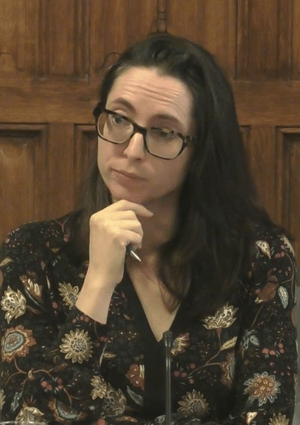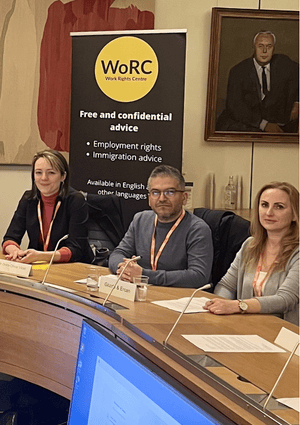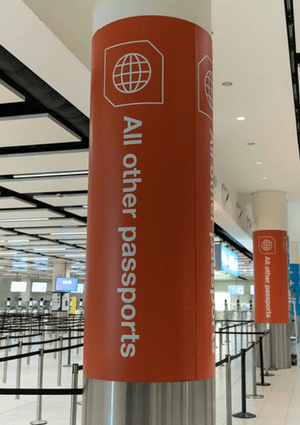Latest

Skilled Worker visas in ninth consecutive decline, as fewer nurses, therapists and scientists come to the UK
Restrictions to migrant workers’ rights and successive increases to employer costs have pushed new Skilled Worker visas to 2021 levels, driven by a loss of overseas healthcare, education, and trade professionals.
Read moreRead more
Pregnancy, poverty, and precarious visas: how migrant women are punished for having children
Gaps in protections left a pregnant migrant carer abandoned by her sponsor, her employer, and the state, pushing the new mother and her baby into dire straits.
Read moreRead more
Experts warn Parliament that ‘earned’ settlement proposals are risky for all
Across 12 oral evidence sessions, leading experts from academia, industry, the legal sector and civil society told the Commons and Lords: "earned" settlement plans risk causing serious damage to our society and economy.
Read moreRead more
‘We are asking for our rights’: when lived experience met legislative power in Westminster
At our first Westminster event, held in collaboration with Neil Duncan-Jordan MP and Unison, migrant workers themselves told MPs and journalists how the “earned” settlement plans would impact their families, careers, and dreams.
Read moreRead more
A fundamental rejection: our submission to the Home Office’s “earned” settlement
We have submitted supplementary evidence to the Home Office fundamentally rejecting the "earned” settlement proposals as they would undermine integration, increase poverty, and fuel systemic exploitation.
Read moreRead more